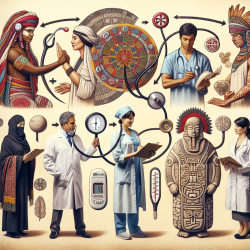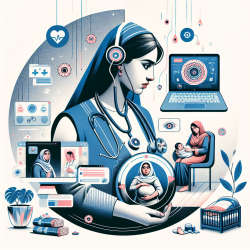The integration of international medical graduates (IMGs) into Canadian family practice presents both opportunities and challenges. A recent study published in the International Journal of Medical Education explores these dynamics, offering valuable insights for practitioners aiming to enhance their skills and improve patient care.
Key Strengths of IMG Residents
IMG residents bring a wealth of strengths to Canadian medical practice:
- Strong Clinical Knowledge and Experience: Many IMGs possess extensive clinical skills, often having trained as specialists in their home countries. This experience enriches the Canadian healthcare system with diverse perspectives on conditions and treatments.
- High Education Level: IMGs often hold multiple academic degrees, contributing to a rich academic environment. Their diverse educational backgrounds can offer fresh insights into patient care.
- Cultural Perspectives: The varied cultural backgrounds of IMGs enhance the multicultural fabric of Canadian society. Their ability to communicate in multiple languages can significantly improve patient interactions and trust.
- Positive Personal Strengths: IMGs are often older and bring maturity, determination, and adaptability to their roles, enriching the professional environment.
Challenges Faced by IMG Residents
The study also highlights several challenges that IMGs encounter during their transition:
- Communication Skills: Language nuances, unfamiliar accents, and non-verbal communication differences can impede effective interaction with patients and colleagues.
- Cultural Differences: Issues such as gender roles, personal space norms, and boundary issues require adaptation to align with Canadian societal expectations.
- Clinical Practice Challenges: Unfamiliarity with certain diagnoses common in Canada and a lack of exposure to mental health conditions can pose initial hurdles.
- Learning Challenges: Adjusting to Canada's healthcare system, patient-centered care models, and self-directed learning approaches can be daunting for some IMGs.
Recommendations for Practitioners
The study concludes that residency programs must incorporate medico-cultural education into their curriculum to address these challenges effectively. Practitioners can take proactive steps to facilitate this transition:
- Cultural Competency Training: Engage in continuous learning about cultural differences and how they impact patient care. This understanding can improve communication and build stronger doctor-patient relationships.
- Mentorship Programs: Establish mentorship opportunities where experienced practitioners guide IMGs through the nuances of Canadian medical practice.
- Feedback Mechanisms: Create supportive environments where feedback is constructive and encourages growth rather than defensiveness.
- Diversity Awareness: Promote an inclusive work culture that values diverse perspectives and experiences as assets rather than challenges.
The integration of IMGs into Canadian family practice is a complex process that requires understanding, adaptation, and support from all stakeholders involved. By embracing diversity and fostering an environment conducive to learning, practitioners can enhance their skills while improving patient outcomes.
To read the original research paper, please follow this link: Cultural transition of international medical graduate residents into family practice in Canada.










